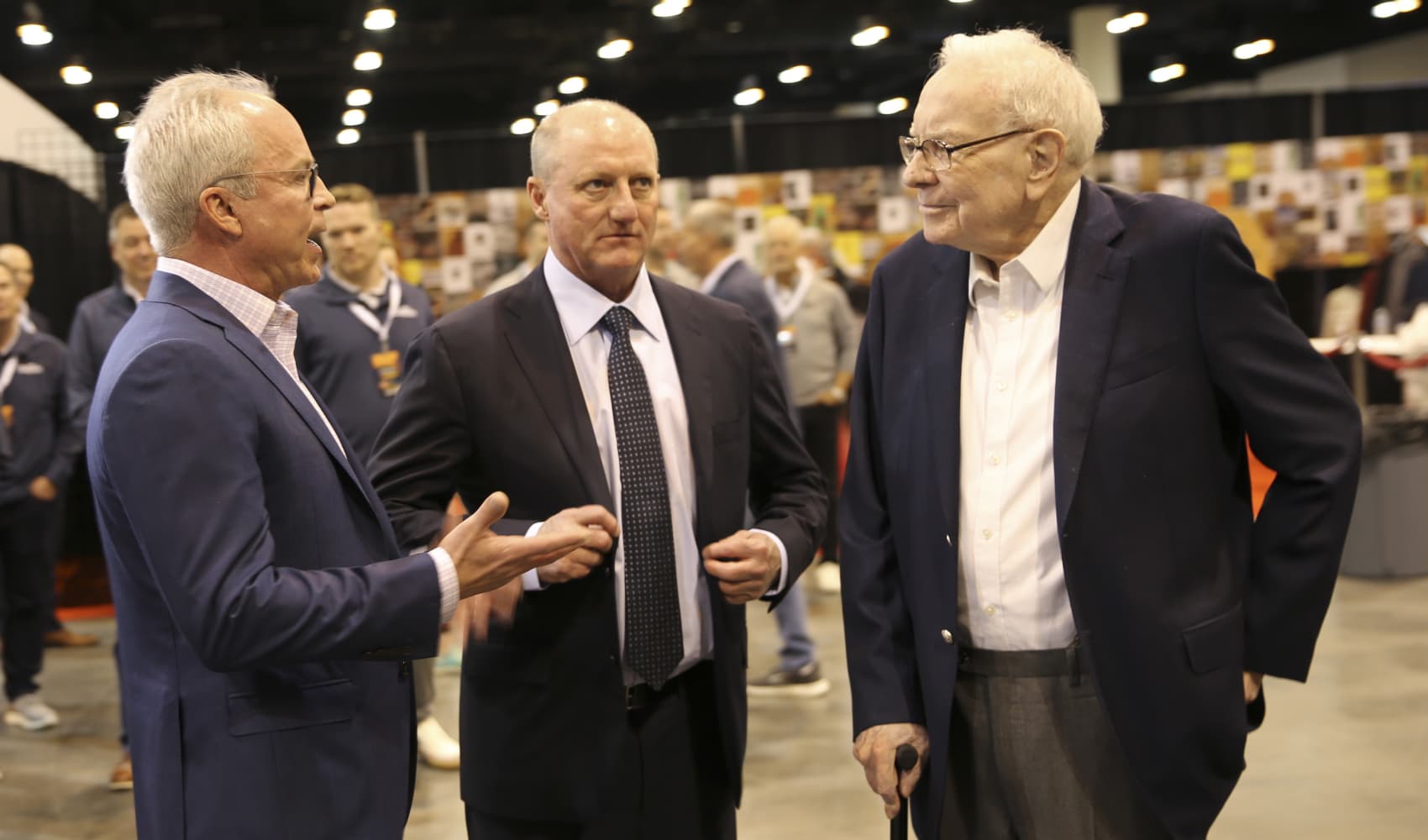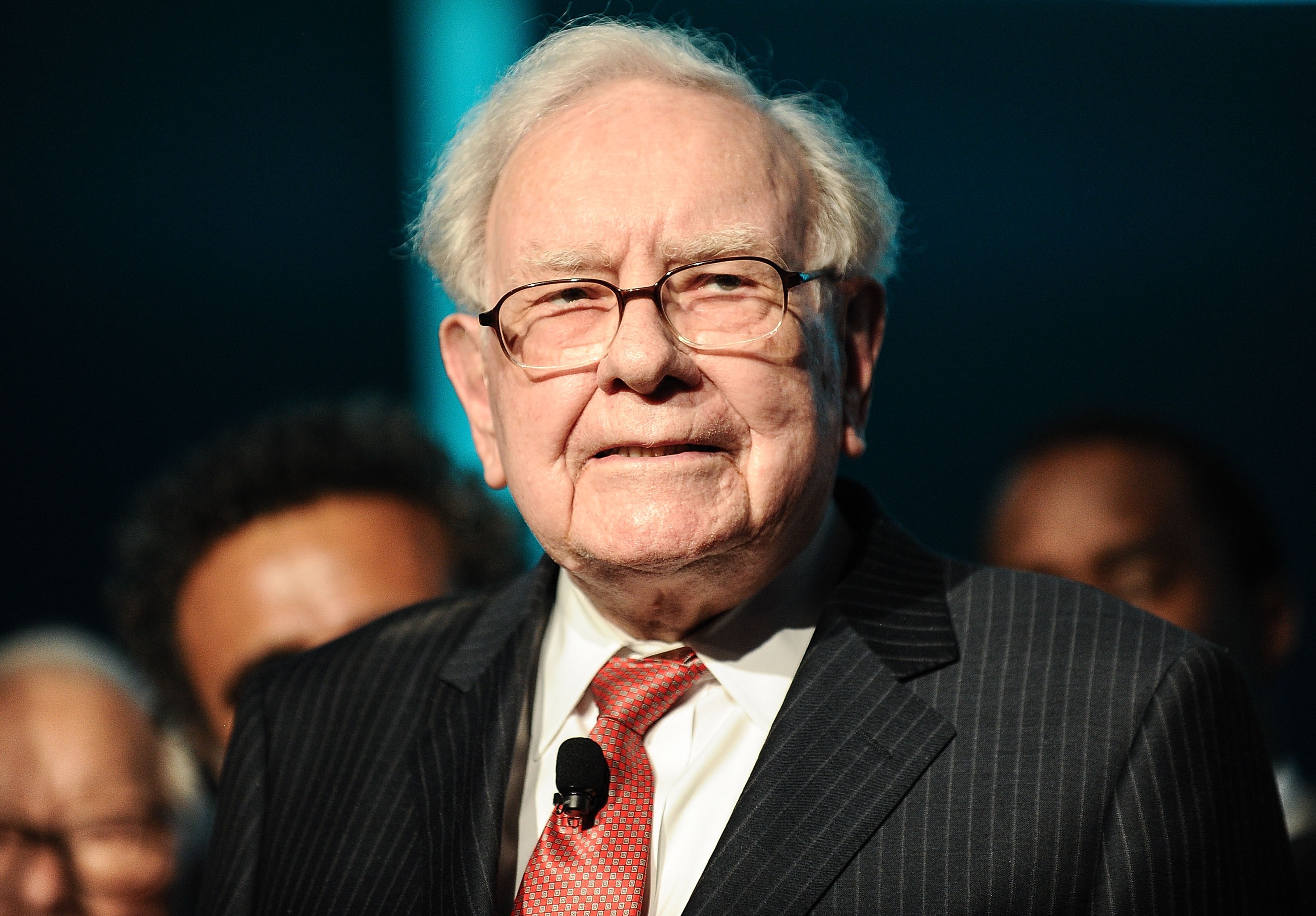Warren Buffett's Successor: Greg Abel Takes the Reins at Berkshire
Passing the Torch: Buffett's Successor Named, Berkshire's Future Unveiled
A New Chapter Begins: Buffett's Succession Plan
Well, folks, it's the end of an era, but also the beginning of an exciting new chapter. As announced in Omaha this weekend, Warren Buffett intends to recommend that Berkshire Hathaway's board of directors appoint Greg Abel as the company's new CEO by the end of the year. Think of it as the passing of a legendary baton, a carefully orchestrated transition designed to ensure the continued success and prosperity of one of the world's most admired companies. Buffett, ever the strategist, is making sure Berkshire is in good hands for the long haul.
The Surprise Announcement at the Annual Meeting
Even though Greg Abel had been designated as Buffett's successor back in 2021, the news still came as a surprise to many of the shareholders attending Berkshire Hathaway’s annual meeting. Imagine being in that room, listening to the Oracle of Omaha himself discuss the future of the company, and then dropping this bombshell! It's like attending a magic show and suddenly realizing the magician is about to reveal all his secrets. The atmosphere must have been electric.
Buffett's Confidence in Abel: A Sign of Things to Come
Buffett's decision to entrust the CEO role to Abel is a testament to his confidence in Abel's leadership abilities and his understanding of Berkshire's unique culture. It's not just about handing over the reins; it's about ensuring the company remains true to its values and continues to generate value for its shareholders. This isn’t just a job change; it’s the culmination of years of planning and a deep understanding of Abel’s capabilities.
Greg Abel: The Chosen One
Abel's Background and Expertise
So, who is this Greg Abel, the man chosen to lead Berkshire Hathaway into the future? Abel, currently the Vice Chairman of Non-Insurance Operations, has a long and impressive track record within the Berkshire empire. He's been instrumental in the success of various Berkshire subsidiaries, demonstrating his business acumen and leadership skills. He's like a seasoned pilot who's flown countless successful missions, ready to take command of the flagship.
Why Abel?
Why Abel, you might ask? What makes him the right choice to succeed a legend like Warren Buffett? Well, besides his proven track record, Abel is known for his strategic thinking, his operational expertise, and his ability to effectively manage complex businesses. He’s respected within the company and has earned the trust of Buffett himself. Buffett clearly sees in Abel the qualities necessary to navigate the challenges and opportunities that lie ahead.
Berkshire Hathaway: More Than Just a Company
A Legacy of Value Investing
Berkshire Hathaway is more than just a company; it's a symbol of value investing, long-term thinking, and ethical business practices. Buffett has built an empire based on these principles, and it's crucial that his successor upholds them. It’s a sacred trust, if you will.
Maintaining the Berkshire Culture
One of the biggest challenges for Abel will be maintaining the unique Berkshire culture, which is characterized by decentralization, autonomy, and a focus on long-term value creation. It's like preserving a rare and delicate ecosystem; any disruption could have far-reaching consequences.
The Board's Role in the Transition
Buffett mentioned that he would be discussing the transition with the Berkshire Hathaway board of directors. Their role in this process is critical, as they will ultimately be responsible for approving Abel's appointment and ensuring a smooth handover of power. They are the stewards of the company, ensuring its continued success and prosperity.
What This Means for Berkshire Shareholders
So, what does all of this mean for Berkshire shareholders? While change can be unsettling, Buffett's succession plan is designed to minimize disruption and ensure the long-term stability of the company. Abel is a known quantity, and his appointment should provide reassurance to investors. It's like having a reliable captain take over the helm of a well-maintained ship.
The Future of Berkshire's Investment Strategy
Will Abel Follow Buffett's Lead?
One of the big questions on everyone's mind is whether Abel will continue to follow Buffett's value investing strategy. While Abel may have his own unique investment style, it's likely that he will adhere to the core principles that have made Berkshire so successful. After all, why fix something that isn't broken?
Potential Changes and Adaptations
However, it's also possible that Abel will introduce some changes and adaptations to Berkshire's investment strategy. The world is constantly evolving, and it's important for companies to adapt to stay ahead of the curve. Think of it as tweaking the sails to catch the changing winds.
Challenges and Opportunities Ahead
Navigating a Changing Economic Landscape
Abel will face a number of challenges as CEO, including navigating a changing economic landscape, managing Berkshire's vast portfolio of businesses, and maintaining the company's competitive edge. But with challenges come opportunities, and Abel is well-equipped to seize them.
Technological Disruption and Innovation
Another key challenge will be adapting to technological disruption and innovation. Berkshire has traditionally been a slow adopter of new technologies, but Abel may need to accelerate this process to ensure the company remains relevant in the digital age. It’s like upgrading an old machine to keep up with the times.
The Importance of Succession Planning
Buffett's succession plan highlights the importance of effective succession planning for all companies. It's crucial to identify and develop future leaders to ensure a smooth transition of power and maintain business continuity. It's like planting seeds for the future harvest.
The End of an Era, But Not the End of the Story
While Buffett's departure as CEO marks the end of an era, it's not the end of the Berkshire Hathaway story. Abel is ready to lead the company into the future, and with Buffett's guidance and the support of the board of directors, Berkshire is well-positioned to continue its success for many years to come. It's simply turning the page to a new chapter.
What Does This Mean for the Future of American Business?
Buffett’s legacy extends beyond just Berkshire Hathaway. He has influenced generations of investors and business leaders. What will happen next? The world will be watching Abel, using his leadership as a potential model for others. Abel’s actions, philosophies, and results will be closely scrutinized.
Conclusion: A Smooth Transition and a Bright Future
In conclusion, Warren Buffett's decision to appoint Greg Abel as his successor is a significant milestone in the history of Berkshire Hathaway. While change can be daunting, this carefully planned transition should provide reassurance to shareholders and ensure the long-term success of the company. Abel is a capable leader with a proven track record, and he is well-equipped to navigate the challenges and opportunities that lie ahead. The future of Berkshire Hathaway looks bright, even without the Oracle of Omaha at the helm.
Frequently Asked Questions
- When will Greg Abel officially become the CEO of Berkshire Hathaway?
Warren Buffett intends to recommend Abel's appointment to the board, with the transition expected to occur by the end of the year.
- Will Warren Buffett still be involved with Berkshire Hathaway after the transition?
While stepping down as CEO, it's highly likely that Buffett will remain involved in the company as Chairman, providing guidance and oversight.
- How will this change affect Berkshire Hathaway's investment strategy?
While Abel may introduce some adaptations, it's expected that he will largely adhere to the core principles of value investing that have made Berkshire successful.
- What are Greg Abel's key strengths as a leader?
Abel is known for his strategic thinking, operational expertise, and ability to effectively manage complex businesses. He is also highly respected within the company.
- Where can I find more information about Greg Abel's background and experience?
You can find information about Abel on Berkshire Hathaway's website and in various business news articles and publications.

